MPs take control of Brexit from PM after Commons vote as three ministers quit
An amendment enabling MPs to stage a series of ‘indicative votes’ on the way forward was backed.

MPs have dramatically seized control of the Brexit agenda from Theresa May – potentially paving the way for a “softer” deal that keeps the UK closer to Brussels.
The Commons voted by 329 to 302 – a majority of 27 – for a cross-party amendment to enable MPs to stage a series of “indicative votes” on alternatives to the Prime Minister’s deal.
Three pro-EU ministers Richard Harrington, Alistair Burt and Steve Brine quit the Government to vote for the amendment. They were among 30 Tory MPs to support it.
In his letter of resignation, Mr Harrington, a business minister, accused the Government of “playing roulette” with the lives and livelihoods of the people of Britain in its handling of Brexit.
The Department for Exiting the EU said the vote had set a “dangerous, unpredictable precedent” and called on MPs to show “realism” in deciding what options to support.
The result is another humiliation for Mrs May, who earlier warned MPs not to “overturn the balance of our democratic institutions” which means the Government normally controls business of the House.
She made clear she would not feel bound by the result of any indicative votes – which could include a “softer” Norway-style deal, or a second referendum.
“No Government could give a blank cheque to commit to an outcome without knowing what it is,” she said.
“So I cannot commit the Government to delivering the outcome of any votes held by this House. But I do commit to engaging constructively with this process.”
The successful amendment was tabled by Tory former minister Sir Oliver Letwin with cross-party backing, including from ex-attorney general Dominic Grieve and Labour’s Hilary Benn.
It means MPs will take control of the Commons order paper from 2pm on Wednesday, with Sir Oliver suggesting voting could carry on over several days to establish if there was a proposal the House could coalesce around.
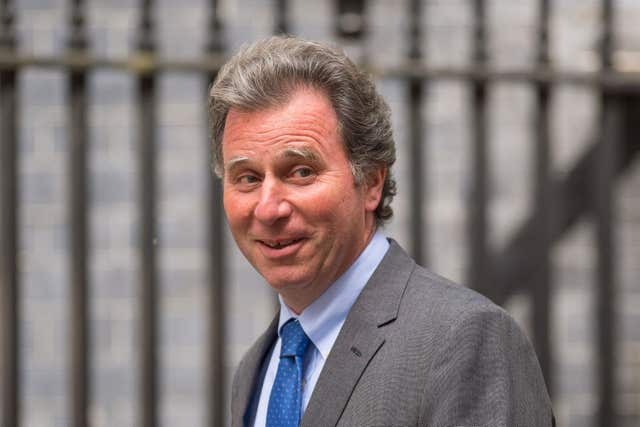
He said it provided for the Commons “to begin the process of working its way towards identifying a a way forward that can command a majority in this House”.
Labour leader Jeremy Corbyn said: “The Government’s approach has been an abject failure and this House must now find a solution.”
He told MPs: “The Government must take this process seriously. We do not know what the House will decide on Wednesday. But I know there are many members of this House who have been working for alternative solutions, and we must debate those to find a consensus.
“And this House must also consider whether any deal should be put to the people for a confirmatory vote.”
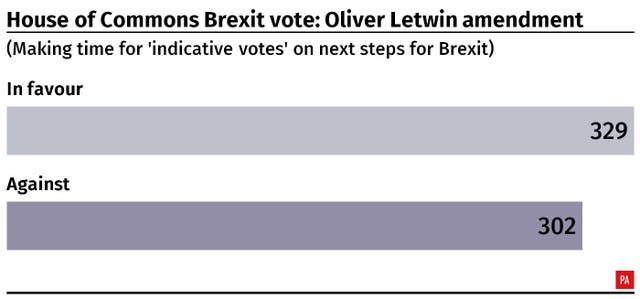
The vote came after the PM acknowledged that she still did not have sufficient support to bring back her deal to the Commons for a third “meaningful vote”.
She said she would continue her efforts to build support for the deal – defeated by 230 votes in January and 149 votes in March – and stage a vote before the end of the week.
The European Council last week set a deadline of Friday for her to secure parliamentary approval for her Withdrawal Agreement if the UK is to leave the EU with a deal on May 22.
If she cannot get it through the Commons, then the UK has until April 12 to propose a different approach or crash out of the EU without a deal.
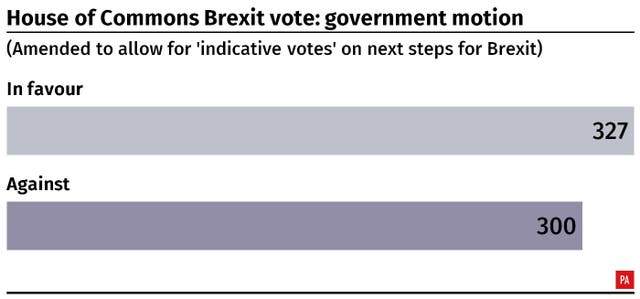
In a statement to MPs, following a special meeting of Cabinet to discuss her plans, Mrs May said she regretted having to delay Brexit beyond the scheduled date of March 29 and thought “the right way forward” was to leave with a deal on May 22.
But she said: “I have had to conclude that as things stand, there is still not sufficient support in the House to bring back the deal for a third meaningful vote.
“I continue to have discussions with colleagues across the House to build support, so that we can bring the vote forward this week, and guarantee Brexit.”
Her admission came shortly after a phone call with DUP leader Arlene Foster, who made clear the Northern Irish party was not giving up its opposition.
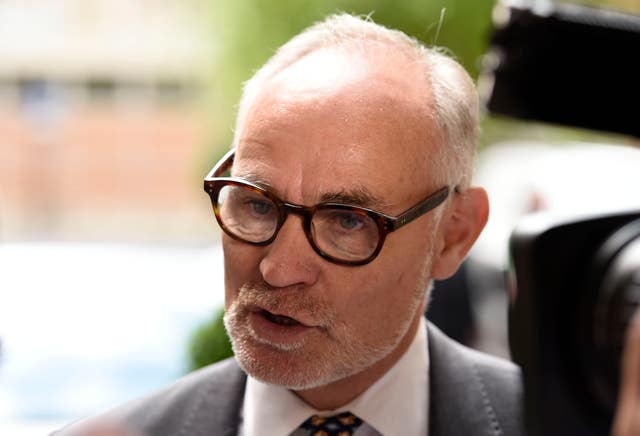
However Mrs May faced a furious response from some pro-Brexit Tories who accused her of effective taking a no-deal break off the table.
Former minister Crispin Blunt said she had “put the final torpedo” into any prospect of a “real Brexit” in “the most shameful surrender by a British leader since Singapore in 1942″.
No 10 however insisted she had simply been warning of the dangers allowing MPs – the majority of whom backed Remain in the referendum – to take control of the process.
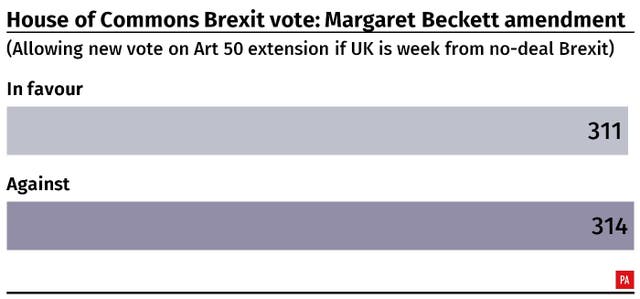
In presenting his amendment Sir Oliver said he did not think there was currently a majority for any of the alternatives that had been put forward and that a compromise would have to be found.
He said he believed the first vote should enable MPs to disclose “where the votes lie” on a “plain vanilla basis” – with all votes cast on a paper slip at the end of the debate.
He suggested the House should then seek to establish a method of voting that would enable it to “zero in” on compromise which could command a majority over the course of the coming days.





